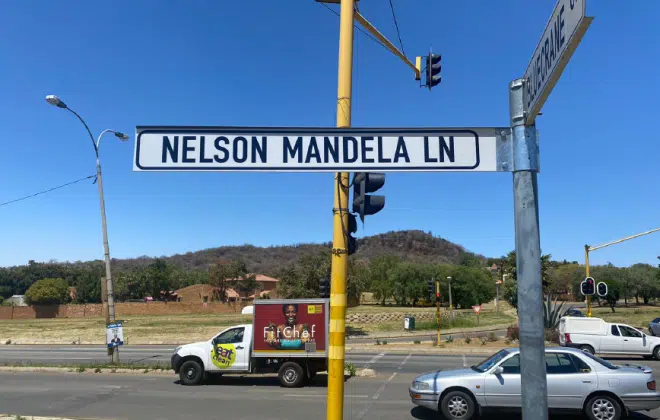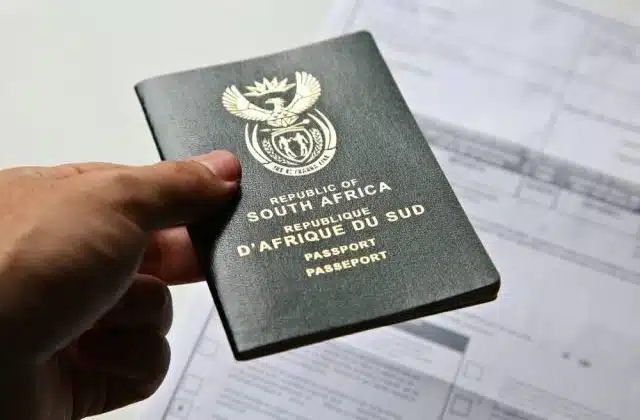
Government moves to stop ‘next phase’ of insurrection in South Africa: report
The South African government is entering a ‘clean-up’ phase of its response to this past week’s violent riots and looting, which includes taking steps to stop unrest from spilling over to other parts of the country.
President Cyril Ramaphosa on Friday night characterised the week-long riots as a failed insurrection, saying that certain groups were behind the unrest.
Security officials had reportedly identified 12 people as ‘instigators’ of the riots, with one brought into custody so far.
While the violence was largely contained and limited to KwaZulu-Natal and Gauteng, high-ranking security officials told the City Press that there is a risk that other provinces may follow suit, and the government is now moving to gather intelligence and fortify areas believed to be the instigators’ next targets.
Police and soldier visibility is also expected to be ramped up at hospitals and vaccination sites, to try and get the country’s Covid-19 vaccination programme back on track – while the government is reportedly planning comprehensive relief packages for businesses affected by the riots, aimed specifically at those that are uninsured.
With 25,000 SANDF forces already deployed, this may see soldiers positioned in areas for longer – possibly two to three months – with a concerted effort within the ANC itself to root out the individuals who fanned the flames of violence, or sat back and did nothing to stop them.
Failure of intelligence
In his Friday address, Ramaphosa admitted that the government had failed to meet the riots and violence with an adequate response, and intelligence had failed them on the ground.
“We must acknowledge that we were poorly prepared for an orchestrated campaign of public violence, destruction, and sabotage of this nature,” he said.
“While we commend the brave actions of our security forces on the ground, we must admit we did not have the capabilities and plans in place as this happened to respond swiftly and decisively,” Ramaphosa said.
He said that the police were faced with a difficult situation and exercised commendable restraint to prevent any loss of life or further escalation.
“However, once additional security personnel were deployed they were quickly able to restore calm to most areas which were affected.”
In an analysis of this week’s events, professor Jane Duncan from the University of Johannesburg said that it was “organised chaos”, with much of the blame for its escalation laid at the feet of government intelligence, which failed to take the necessary action.
“The intelligence community could be responsible for one of the most egregious intelligence failures imaginable,” she said, adding that, ironically, those tasked with protecting national security may have become the single biggest threat to national security through this failure.
South Africa’s security cluster has turned to finger-pointing on the events of the past week, pointing to capacity challenges, internal divisions within the ANC, and the alleged insurrectionists being privy to sensitive security information within government as causes for the intelligence failure.
“Such a failure would be unsurprising, as time and again, South Africa’s security services have shown themselves to be at their weakest when they attempt to deal with inter-ANC factional battles. Then, they develop all kinds of blind spots,” Duncan said.
“Organised attacks on public and private infrastructure have been going on for years. So have the intelligence and prosecutorial failures around them.”
Ramaphosa said that those responsible for the attempted insurrection would be brought to book.
“We will identify and act against those who lit the flame, and those who spread it and those still attempting to do so.
“We will find those who instigated this violence. They will be held accountable for their deeds. We will not allow anyone to destabilise our country and get away with it,” he said.
Duncan said it is highly unlikely that the instigators are not known to authorities, and that the deployment of the SANDF is not the silver bullet for the problem.
“It is difficult to believe that the instigators of this organised chaos are not known.
“They must be arrested immediately, which will cut the head off the mobilisations. Things are likely to de-escalate from there, although the terrible social conditions that they exploited will remain.
“Deploying more police and the SANDF is reactive and not getting to the root of the problem.”



